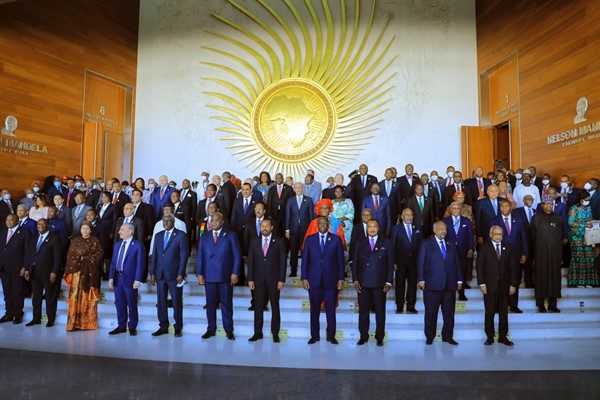The African Union leaders’ summit took place last weekend at the AU’s headquarters in Addis Ababa, Ethiopia. The two-day gathering, which kicked off Feb. 5, was held against the backdrop of the continent’s ongoing struggles with the adverse effects of the coronavirus pandemic—including its persistently low vaccination rates—as well as growing fears of democratic erosion amid a spate of military coups.
The summit also marked the passing of the AU’s rotating leadership baton, with Congolese President Felix Tshisekedi handing over the ceremonial chair to his Senegalese counterpart, Macky Sall. Setting out his priorities for the coming year in his inaugural speech, Sall called for an equitable green energy transition for Africa, better access for the continent to development finance and an end to gender-based violence. He also pledged to consolidate the bloc’s efforts to coordinate a pandemic response, including acquiring more vaccines for its member states and further developing their vaccine production capabilities. According to the AU, only 10 percent of the African population is fully vaccinated, while 11 percent has received at least one dose.
The AU, which is fast approaching the 20th anniversary of its formation, was created as the successor body to the Organization of African Unity, or OAU, to uphold and defend common positions on issues of interest to Africa; promote integration and international cooperation among the bloc’s member states; and support peace, security and stability on the continent. But on those key objectives, as well as others, the 55-member organization continues to face persistent criticisms about its ability to forge a coordinated response to various peace, security and governance challenges across the continent.

